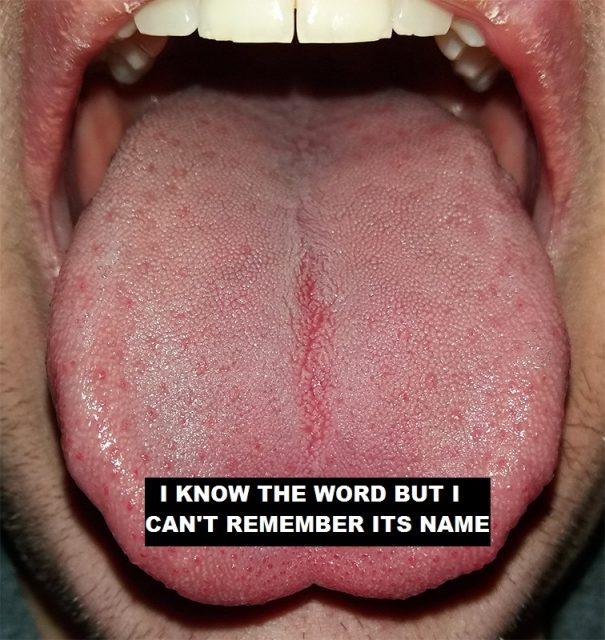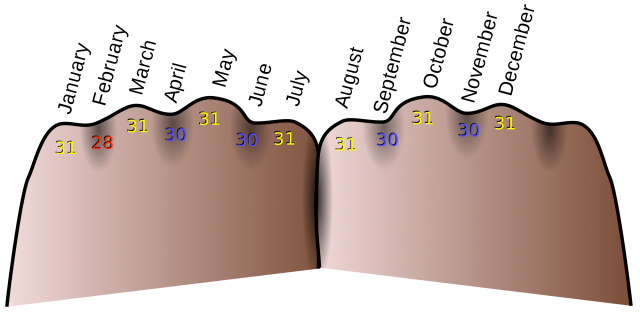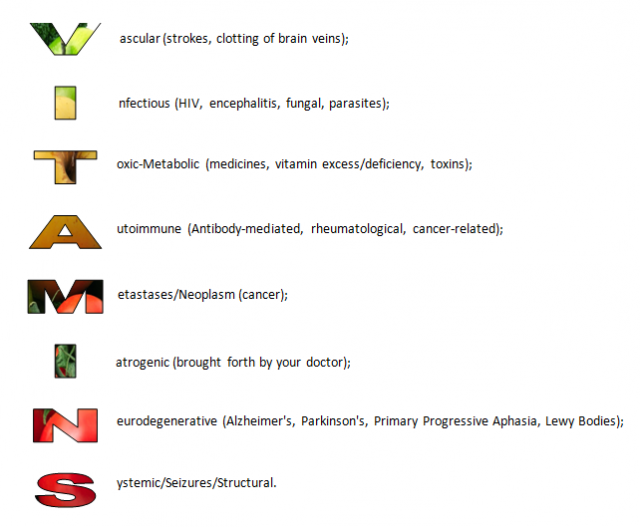What’s wrong with me if I am stuck for words?
If you feel stuck for words every once in a while, the most straightforward answer is that there is nothing wrong with you. Fifty years ago, Roger Brown and David McNeill at Harvard University showed that it is possible to trigger “a state in which one cannot quite recall a familiar word but can recall words of similar form and meaning”1. These authors read definitions of low-frequency words such as apse, nepotism, and sampan to undergraduate students, and asked them to recall the names of the words. In the process of coming up with a word, while they were stuck, students were able to remember the number of syllables the word had, some of its letters, its primary stress, and even some other words related to the one they were looking for. However, they could not remember the name of the word. This state was called the “tip of the tongue phenomenon”, and I am sure there has been a time when this has happened to you.

Although being stuck for words may be seen as something common, if you are having difficulty coming up with certain familiar words akin to the tip of the tongue phenomenon outlined above – say, remembering the names of places, or those of people you usually talked to – and this affects your quality of life, and it is noticeable by those around you, then you may want to seek professional advice for some reassurance.
Being stuck for words as a clinical symptom
Being stuck for words is one of the key symptoms for an array of acute and chronic disorders 23. These include delirium, stroke, depression, encephalitis, psychosis, head injury, brain tumour, metabolic/genetic disorders, and neurodegenerative conditions. The incapacity of finding the right word or saying the right word at the right time can cause severe distress as it hampers our ability to hold a normal conversation.
Sometimes, you may think that being stuck for words relates to stress or depression, particularly, if this symptom appears in the absence of any other cognitive difficulty. And you may be right. For example, people with depression have been shown to speak differently, as they tend to use more negative words or to overuse the pronoun “I” in comparison to people who are not depressed4. Moreover, there is some evidence towards stress or tiredness making it difficult for people to use language, also when speaking in a second language or learning a second language at school5.
Despite these scientific observations, an adequate answer to a query like “I feel stuck for words” may be best provided by a health professional. Your doctor may redirect you to a centre where you may be seen by professionals as varied as a Speech and Language Therapist, a Psychologist, or a Neurologist. Sometimes, the right answer may be in line with the issues discussed above. Other times, however, you may have to face the unexpected answer of being diagnosed with primary progressive aphasia – a specific type of dementia that has a greater preponderance on “forgetting language processes”. 6
Being stuck for words and mnemonics
As a curiosity, when your doctor embarked in the calligraphic and hieroglyphic quest for coding the names of drugs in our prescriptions (a.k.a. when she went to medical school), she probably saved some time in their learning process by using mnemonics. 7 Yes, mnemonics – just like the one of putting both fists together to remember the number of days in each month of the Gregorian calendar.

Mnemonic techniques have been used for a long time. The ancient Greeks and Romans already used them to boost what they would have called “artificial memory” or what we today would call “long term memory”. Interestingly, some doctors and other medical professionals use mnemonics in their everyday practice – there is even a website dedicated to this which allows you to look for medical mnemonics by category! 8
Now, one mnemonic rule that relates to being stuck for words is “VITAMINS”.9

This is quite an interesting mnemonic rule, as by remembering the word “VITAMINS” – not so much the relation between vitamins and dementia10– and by paying attention to each of the letters that form the word, you can prime yourself to remember a long list of possible aetiologies of dementia. These include primary progressive aphasia, under the “N” of neurodegenerative. But also include other possible aetiologies, such as vascular, infectious, toxic-metabolic, and others.
Therefore, if you think you are stuck for words too often, or you feel that you may be experiencing some other symptoms that may in any way be related to dementia, have a look at the figure above and do not be afraid to talk to your doctor. As indicated in “VITAMINS”, being stuck for words does not need to imply that you have primary progressive aphasia or a neurodegenerative disease.
Indeed, your complaint can stem from a wide variety of causes and, on the bright side of it all, some of them can be easily treated. This is, for example, the case of an infection, or problems with excessive use of medicines or drugs that may interfere with specific cognitive processes.11 Still, if you have a neurodegenerative disease, there is plenty that is and can be done, both in terms of your assessment, treatment, and therapy. So, the earlier it is detected, the earlier it can be tackled.12
In sum: if you have been feeling stuck for words lately and your symptoms seem have been slightly worsening over time, do not worry. Sit back, relax, and remember to pay a visit to your doctor – she will hopefully know about mnemonics as well!
References
- Brown, R., & McNeill, D. (1966). The “tip of the tongue” phenomenon. Journal of verbal learning and verbal behavior, 5, 325-337. ↩
- Rohrer, J. D., Knight, W. D., Warren, J. E., Fox, N. C., Rossor, M. N., & Warren, J. D. (2008). Word-finding difficulty: a clinical analysis of the progressive aphasias. Brain, 131, 8-38. ↩
- National Health Services (2015, January 19), Aphasia. ↩
- Rude, S., Gortner, E. M., & Pennebaker, J. (2004). Language use of depressed and depression-vulnerable college students. Cognition & Emotion, 18, 1121-1133. ↩
- Brown, A. S. (1991). A review of the tip-of-the-tongue experience. Psychological bulletin,109, 204. ↩
- Leyton, C., Ballard, K. (2016). Primary progressive aphasia: conceptual evolution and challenges, Neuroscience and Neuroeconomics, 5, 9-18. ↩
- Barcroft, J. (2013). Mnemonics. The Encyclopedia of Applied Linguistics. Iowa, USA: Blackwell Publishing, Ltd. ↩
- Oxford Medical Education (2016, May 09) Medical mnemonics ↩
- Geschwind, M. D., Haman, A., & Miller, B. L. (2007). Rapidly progressive dementia. Neurologic clinics, 25(3), 783-807. ↩
- Morris, M. C., Schneider, J. A., & Tangney, C. C. (2006). Thoughts on B-vitamins and dementia. Journal of Alzheimer’s Disease, 9, 429-433. ↩
- Mattingly, M., Osborn, K., & Prockop, L., Geschwind, D., & Racine Belkoura, C. (2016). Toxic and metabolic dementias. Non-Alzheimer’s and Atypical Dementia, 1, 134-149. ↩
- Robinson, L., Tang, E., & Taylor, J. P. (2015). Dementia: timely diagnosis and early intervention. British Medical Journal (BMJ), 350, h3029. ↩